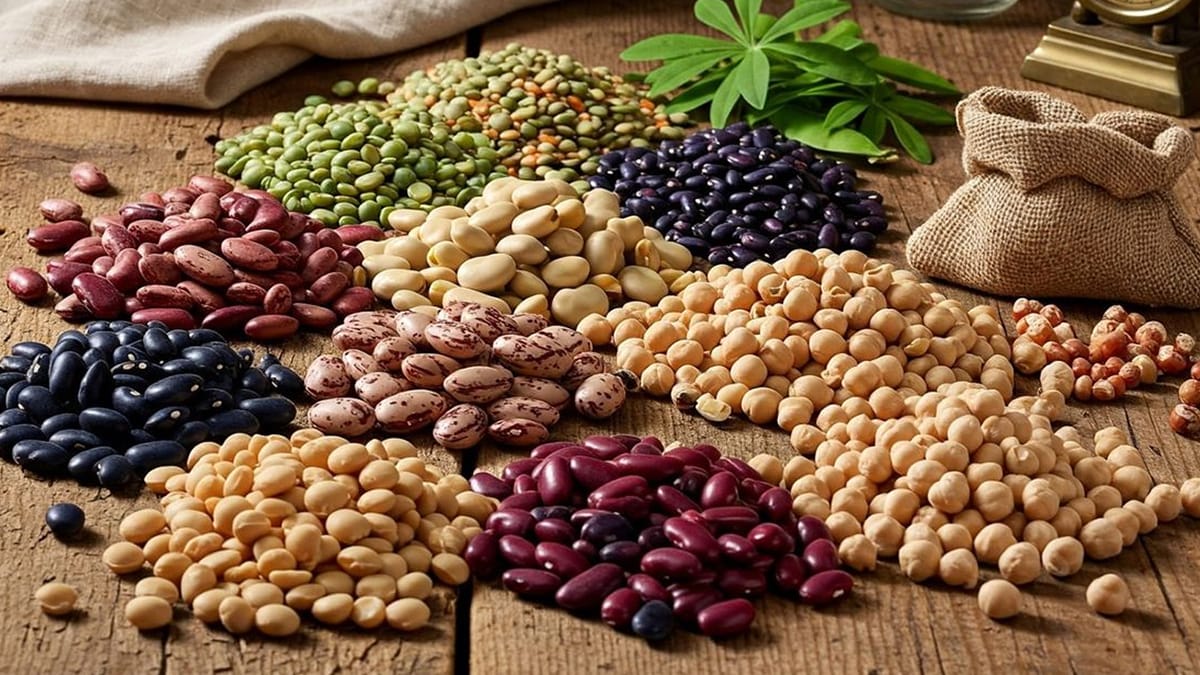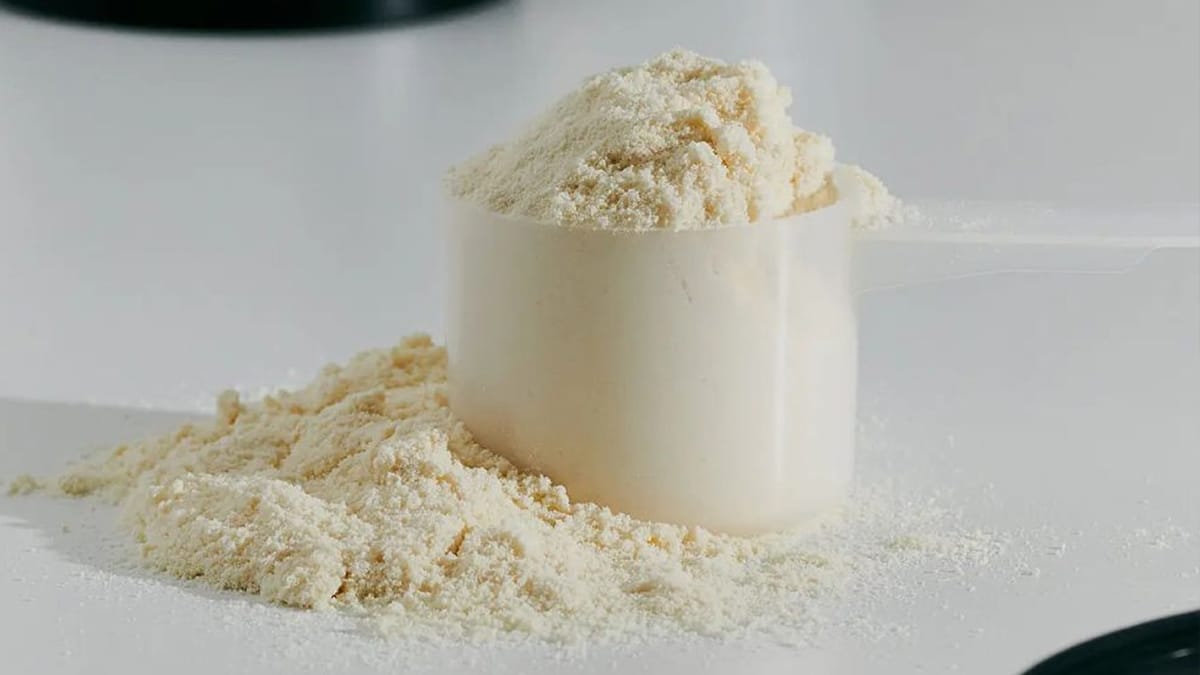How Much Vegan Protein Powder Do You Need Per Day to Build Muscle?
Building muscle on a vegan diet is 100% possible, but it requires careful attention to your daily protein intake. The short answer is this: most people need between 1.6 to 2.2 grams of protein per kilogram of body weight per day to maximize muscle growth. If you are relying heavily on vegan protein powder, that translates to roughly one to three servings daily depending on your total diet, training intensity, and body weight. Now let us break it down step by step.

Understanding Protein Needs for Muscle Growth
When it comes to building lean muscle, protein is non-negotiable. Protein provides the amino acids necessary for repairing and growing muscle fibers after intense workouts. Research consistently shows that athletes, bodybuilders, and fitness enthusiasts require more protein than the average sedentary person. The range of 1.6 to 2.2 grams per kilogram is widely supported by sports nutrition experts and peer-reviewed studies.
If you weigh 70 kilograms (about 154 pounds), you need anywhere between 112 and 154 grams of protein per day. On a vegan diet, this may feel challenging because plant proteins are less concentrated and often lack one or two essential amino acids. This is where vegan protein powders come in handy.
Why Vegan Protein Powder Matters
Vegan protein powders are designed to fill the gaps left by plant-based diets. While beans, lentils, tofu, and tempeh are excellent sources, getting enough protein every day can still be difficult, especially during a bulking phase. Powders made from peas, rice, hemp, soy, or blends of multiple plant proteins offer a high-protein, low-calorie, and convenient solution. They are easy to digest, portable, and can be customized with smoothies, oats, or baked recipes.
The hidden danger? Many vegans underestimate their protein requirements and end up sabotaging their muscle-building goals. Without sufficient protein, your training efforts may go to waste, leaving you frustrated and questioning your diet.
How Much Vegan Protein Powder Is Enough Per Day?
The exact amount depends on your diet and lifestyle. Let us use an example. If you weigh 80 kilograms and your goal is muscle growth, you need roughly 128 to 176 grams of protein daily. If your whole foods diet already gives you 90 grams, then you need to cover the remaining 40 to 80 grams with protein powder. That means two to three scoops daily, depending on the brand and serving size.
Some lifters try to rely solely on protein powders, but this is not recommended. Whole foods provide fiber, micronutrients, and phytonutrients that powders cannot replicate. The best strategy is to use powders as a supplement, not a replacement.
The Science Behind Plant Protein and Muscle Building
Skeptics often claim that plant proteins are inferior to animal proteins. However, modern studies show that when consumed in sufficient amounts, plant proteins can support muscle hypertrophy just as effectively. The key is achieving the right amino acid profile and consuming enough total protein. A 2019 study published in Nutrients found no significant difference in muscle gains between individuals consuming whey protein versus soy protein, provided the protein intake was adequate.
The limiting factor in plant proteins is often leucine, a key amino acid for muscle protein synthesis. Fortunately, high-quality vegan protein powders are formulated to include sufficient leucine or blend different protein sources to achieve a complete amino acid profile.
Best Times to Take Vegan Protein Powder
Timing matters almost as much as total intake. Here are the optimal windows:
* Post-workout: The most important time, as your muscles are primed for recovery and growth.
* Morning: After fasting overnight, protein helps kickstart muscle protein synthesis.
* Between meals: To prevent long gaps without amino acid availability.
* Before bed: Slow-digesting proteins (like soy) can support overnight recovery.
Strategically spacing protein powder servings across the day helps maintain a steady flow of amino acids for muscle repair and growth.
Practical Tips for Maximizing Vegan Protein Powder Benefits
1. Mix and match powders: Use blends of pea, rice, and hemp protein to ensure a complete amino acid profile.
2. Track your macros: Use apps like MyFitnessPal to ensure you are meeting your daily protein targets.
3. Combine with whole foods: Add protein powder to oatmeal, smoothies, or pancakes for nutrient-dense meals.
4. Stay consistent: Building muscle is a marathon, not a sprint. Missing protein targets daily will stall your progress.
5. Avoid overconsumption: Too much protein powder can cause digestive discomfort and displace other essential nutrients.
Common Mistakes When Using Vegan Protein Powder
* Relying solely on powders instead of whole foods.
* Underestimating protein requirements.
* Skipping post-workout nutrition.
* Ignoring overall calorie intake during bulking.
* Not checking for added sugars or fillers in cheap protein powders.
Potential Risks of Not Getting Enough Protein
Failing to consume enough protein daily can lead to multiple setbacks:
* Muscle loss instead of growth
* Slower recovery after workouts
* Reduced strength gains
* Weaker immune system
* Increased risk of injury
In other words, without sufficient protein, your hard work in the gym can go to waste.
Real-World Example
Consider a 25-year-old male, weighing 75 kilograms, training five days per week. His protein requirement is around 120 to 150 grams daily. With three whole-food meals, he averages 80 grams. Adding two scoops of vegan protein powder (about 50 grams) covers his needs perfectly. Within weeks, he notices improved recovery, more strength in compound lifts, and visible muscle gains.
Frequently Asked Questions (FAQ)
**How much vegan protein powder should I take daily for muscle building?**
Most people need 1 to 3 scoops per day depending on their total diet and training intensity. The key is meeting your daily protein target of 1.6–2.2 grams per kilogram of body weight.
**Can I build muscle with vegan protein powder alone?**
No, you should not rely only on powders. Whole foods provide additional nutrients crucial for health and performance. Powders are supplements, not replacements.
**What is the best vegan protein powder for bulking?**
Blends of pea and rice protein are excellent, as they complement each other’s amino acid profiles. Hemp and soy proteins are also strong options.
**Is too much vegan protein powder dangerous?**
Excessive intake can cause digestive discomfort and may strain your kidneys if consumed in extremely high amounts. Stick to balanced intake.
**When should I drink vegan protein shakes?**
The best times are post-workout, in the morning, and between meals. You can also take a serving before bed for overnight recovery.
**Do I need supplements other than protein powder for muscle growth?**
Creatine, BCAAs, and omega-3s can further support muscle growth and recovery on a vegan diet, but protein remains the foundation.
Product Recommendations (Generic Examples)
* Pea and rice protein blend powder
* Soy protein isolate powder
* Hemp protein powder
* Vegan protein blend with added digestive enzymes
* Organic brown rice protein powder
Tips and Warnings
* Always check labels for artificial additives and sugars.
* Rotate protein sources to avoid boredom and maximize nutrient variety.
* Stay hydrated, as higher protein intake requires more water for digestion.
* Pair your shakes with strength training for best results.
* Consult a dietitian if you have health concerns or kidney issues.
Final Thoughts: Actionable Tips
1. Calculate your protein needs based on your weight and goals.
2. Aim for 1.6–2.2 grams per kilogram daily.
3. Use vegan protein powders to fill the gap, not as a sole source.
4. Prioritize timing, especially post-workout.
5. Choose high-quality powders with complete amino acid profiles.
6. Stay consistent with training and nutrition.
7. Monitor progress and adjust intake as needed.
Reference & Additional Reading
Inspired by studies and insights from:
www.health.harvard.edu
www.menshealth.com
www.healthline.com
www.womenshealthmag.com
www.ncbi.nlm.nih.gov
www.webmd.com
www.medlineplus.gov
www.tridenttech.edu
www.burnexia.com

